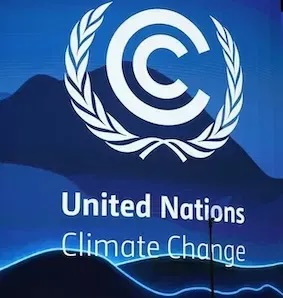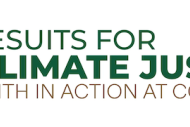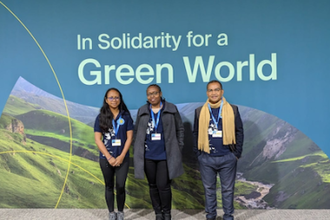Jesuit Missions at UN Climate Change Conference - Days 4 and 5

Friday 20th June
On Friday 20th June, the 5th day of the SB62 talks, members of the Network of Catholic Climate and Environment Actors (NCCEA) met with the delegation sent by the Holy See (the Vatican). Policy experts within the NCCEA summarised our main concerns:
1. NDC Ambition
'Nationally Determined Contributions are the plans that countries make to reduce their carbon emissions. Some countries' plans are very impressive - like those of low-lying island Vanuatu - but many lack ambition and most have yet to be submitted in the current round. We requested that the Holy See should submit its own plan soon.
2. Just Transition
There is an urgent need to transition to a low-carbon economy that would violate nobody's rights and leave nobody behind.
3. Climate finance
We stressed the need for sufficient public, grant-based finance to be provided by developed countries to developing countries, and for cancellation of unjust and unpayable debt to be part of this.
4. Fund for Responding to Loss and Damage
There is an urgent need for the Fund for Responding to Loss and Damage to receive sufficient money to make a difference.
5.The need for action for Climate Empowerment
There is a need to ensure that countries are enabled to do that they need to do to take action on climate change, including through climate education.
6. Food systems transformation and agroecology
We said that a global food sovereignty system is needed based on culturally adapted modes of production, transformation, distribution, and food consumption, applying ecological principles to agriculture.
7. Way forward on preparing for COP30
We spoke of the need to ensure that Catholic organisations and the Church in Brazil co-ordinate practical arrangements for the COP 30 talks in November in Belem, Brazil.
The Holy See delegation welcomed the opportunity to hear from us all and stressed the need for education on climate change to take place everywhere and at all levels so that people realise the urgency of the need to take action. It emphasised the need for debt cancellation and spoke of Pope Francis' urgent call for this in his proclamation of the Jubilee Year. And it observed that Just Transition has to be something other than a technocratic exercise but be based instead on what the Church calls Integral Ecology, taking all our relationships with each other and other life forms into account. The meeting ended with fervent prayer for peace in the world.
Further meetings between NCCEA and the Holy See delegation will take place before the COP30 talks.
Saturday 21 June
At the end of the first week of a conference characterised by the continuing reluctance of the rich countries which have caused the climate crisis to stump up anything approaching the amount of money needed to tackle it, it was bizarre to sit through several meetings in which country delegations quibbled over the minutiae of texts. In general all developing countries, including those which have recently become relatively prosperous, are united in their insistence that developed countries fulfil their financial obligations under the Paris Agreement of 2015; but a dispute broke out between China and the Arab Group of Nations on one side and the Least Developed Countries and the European Union on the other about whether to 'welcome' or simply 'take note of' the notes of a previous meeting. While the discussion continued I was wondering how long it will be before the rapid loss of glaciers in the Alps slows the summer flow of the nearby River Rhine to a trickle, and whether the discussion was really helping effective climate action.
A dialogue between the Chairs of the Subsidiary Body on Implementation (SBI) and the Subsidiary Body of Scientific and Technical Advice (SBSTA) and Observer Groups (including us Jesuits, though we did not speak because large groupings of organisations spoke first, and we ran out of time) was more enlivening. Many concerns were raised. One was the difficulty caused to so many delegates by the fact that all business was in English and at most sessions no interpretation was available. The Chairs agreed, explaining that United Nations budget cuts were to blame. This is very disempowering for many civil society organisations; as are the frequent delays in the agenda caused by disputes between countries, meaning that there is no time for Observers to speak and posing the danger that there will be insufficient time for agreement to be reached on some agenda items, including the Gender Action Plan.
Friends in Caritas Internationalis and SCIAF (Scottish Catholic International Aid Fund) held a side event on 'Holistic Climate Action' which considered hopeful examples of agroecological agriculture making life better for small-scale farmers and building resilience and adaptability in the face of a changing climate. It was good to end the first week on a note of hope: it had not been a hopeful week, and I had felt disgust at the way the most wealthy continued to use their power to prevent 'the Wretched of the Earth' from achieving justice. The struggle continues!


















